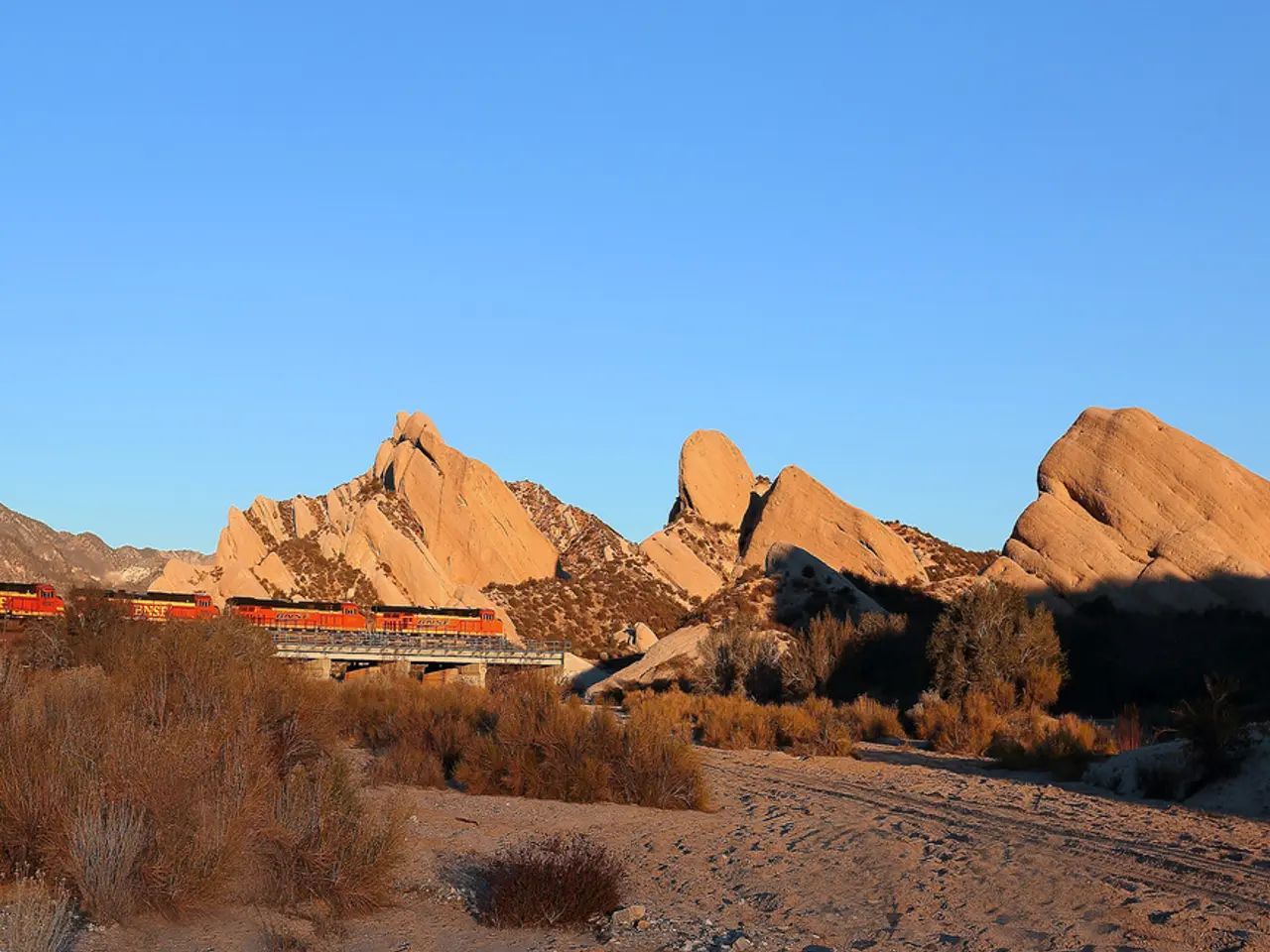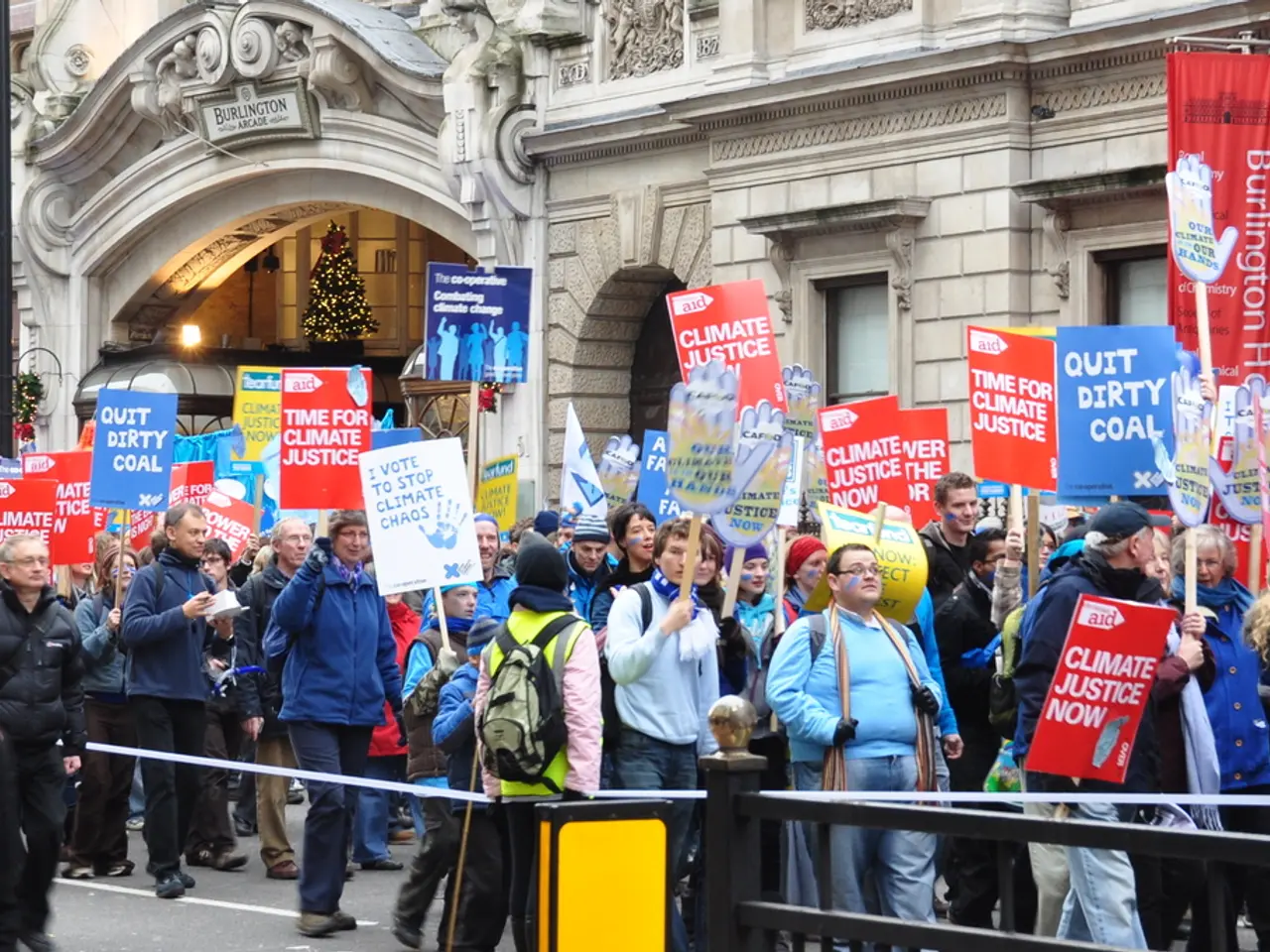Generous compensation extended to top executive positions
Being a CEO: More Than Just a Fat Check
Strolling down Wall Street with a sack of cash may not be your average Joe's dream, but for CEOs of major US companies, it's a common reality. But let's not forget, being a CEO is no walk in the park. Cruising through issues like tariffs, climate change, and diversity, equity, and inclusion (DEI) while juggling the whims of the Trump Administration is no joke.
Now, don't get it twisted - the pay for this gig is mind-blowing. But let's not beat around the bush, shall we?
Already a subscriber? Sign in
Want more juicy insights into what's happening behind closed doors? Subscribe now.
ST One Digital - Monthly
$9.90/month
No commitments
Subscribe now
Alright, let's dive into the deets.
Unlock these perks
- Access to subscriber-only content on our app and website
- Easily read on one mobile device via our app
- E-paper with a 2-week archive so you don't miss a beat
Join ST's Telegram channel for the scoop on breaking news.
CEO life isn't a walk in the park - and when you factor in tariffs, climate change, and the ever-changing political landscape, it's a wonder anyone wants the job.
So, how much coin do these top dogs actually make? Well, hey, it ain't peanuts. They rake in multimillion-dollar pay packages, with base salary, bonuses, stock options, and other perks as part of the deal [1]. But it's not all peachy - tariffs can shake things up and add a whole lot of unpredictability to the mix.
Tariffs=Unease and Tension
With tariffs upending supply chains and boosting costs, leadership teams need to rethink sourcing, storage, and pricing strategies. Designing compensation plans becomes a challenge since exogenous factors like tariffs can impact corporate performance unpredictably [5][3].
For instance, figuring out targets for incentive pay is no bed of roses when the impact of tariffs on earnings and operations is uncertain. This uncertainty can trickle down to CEO pay's performance-based components, particularly if companies need to adapt flexibly to tariff-driven disruptions.
Executive Anxiety
Fact: CEOs are feeling more antsy about tariffs than during prior financial meltdowns [2]. Industries heavily reliant on materials from tariff-targeted countries, like China, face a world of pain, especially when it comes to rare-earth elements crucial for manufacturing.
Climate Change and the ESG Craze
Those pesky tariffs can also mess with climate risk and sustainability transitions. Tariffs can impact CO2 emissions and transition risks by affecting companies' cost structures and shifting their emphasis toward environmentally friendly technologies [1]. The great Green, ESG (Environmental, Social, Governance) revolution means CEOs are expected to integrate these factors into corporate strategy, which can affect how they're compensated for meeting climate-related and diversity milestones.
Trump Administration Policies: A Rundown
Remember when the Trump Administration shook things up with increased tariffs and regulatory changes? Almost half of business leaders ranked the US economic policy as a top factor spurring strategic shifts over a one-to-two-year period [4]. Even consumer-focused businesses freaked out about tariffs, pursuing tactics like stockpiling materials and searching for new suppliers to avoid getting their fingers burned.
These shifts can be a headache for CEOs, forcing them to balance short-term turbulence with longer-term strategic adjustments, which, in turn, impacts their compensation arrangements to some degree.
Conclusion
CEO pay packages are astronomical due to diverse compensation components [1], but tariff-related risks and ESG factors are reshaping leadership compensation and risks. CEOs must tango between economic, regulatory, and societal forces to keep their companies afloat, with tariff dynamics and ESG considerations playing increasingly substantial roles in the corporate world.
If you're ready for more juicy gossip, subscribe now to get the inside scoop. Cheers!
- Despite their extravagant pay packages, CEOs of major US companies face various challenges such as tariffs, climate change, and political landscape changes, making the job anything but a walk in the park.
- Factoring in tariffs and ESG (Environmental, Social, Governance) considerations, CEO pay packages are becoming increasingly complex and are being reshaped to reflect the more unpredictable business environment.








